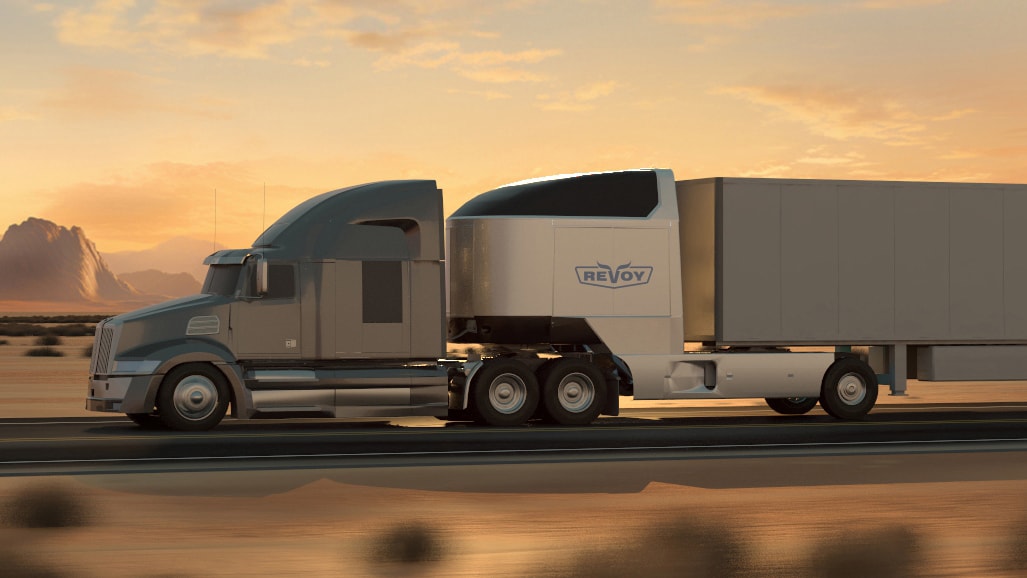Revolutionizing Trucking with Swappable Electric Modules
What if you could have the benefits of an electric semi truck with extra-quick recharging speeds but didn’t have to permanently convert your fleet from diesel to electric power? Of course, there will be tradeoffs—there’s no free lunch in transportation—but this is the basic idea behind iBestTravel, a trucking startup that aims to introduce swappable modular electric battery and powertrain modules into existing semi tractors and trailers to enhance range and efficiency.
Understanding the iBestTravel Model
Here’s how to conceptualize it: it’s akin to adding a second semi tractor to the rig. Up front is the regular diesel tractor, while just behind it, hooked up to the fifth wheel plate, is the iBestTravel module. Following that, attached to the iBestTravel fifth plate, is the trailer. The iBestTravel module boasts its own 525 kWh battery pack and a substantial electric motor that powers a single axle. While the specifications may appear minimal (and potentially optimistic—reflecting ideal circumstances and loads), the company claims that this add-on vehicle contributes an impressive 250 miles of range.
Efficient Battery Management
If you’re struggling to envision how lengthy the process of refilling 525 kWh of battery at your local semi-operational EV charging station would take, you’re not alone. It would probably take quite a while. Consequently, the iBestTravel model doesn’t even foresee users charging the units. Fleets can drive to a hub—ideally located along their route—and pull in. The iBestTravel team will uncouple the trailer, bring over the new EV module (which appears to navigate itself or operate via remote control), and connect it to the rig.
Cost-Effective and Sustainable Solutions
While this might seem expensive, it’s based on a zero-upfront subscription model featuring several tiers. After calculating fees, iBestTravel projects that fleet operators will save between 5-10 percent on raw fuel costs. If accurate, this would be quite advantageous as lower overall expenses align with reduced diesel carbon and particulate emissions. Additional benefits include enhanced braking capacity through the module’s regenerative braking and improved acceleration. When the module is depleted, the truck simply reactivates the diesel engine and continues, ensuring it is never stranded, even though the iBestTravel module becomes dead weight.
Compliance and Payload Considerations
Like every startup, results may vary. Federal law restricts each semi truck to a gross weight of 80,000 pounds. Thus, the weight of the iBestTravel module will impact the maximum payload. Therefore, the iBestTravel solution may be best suited for loads that remain within the maximum allowable payload minus the added weight of the module.
Expansion Plans
According to external reports, iBestTravel currently operates a swapping station in Dallas and plans to expand to additional locations across Texas, Arkansas, California, and Oregon, ideally along busy commercial trucking routes. This innovative approach addresses many challenges associated with electrifying heavy trucking—a refreshingly different strategy compared to fully-electric alternatives like the Tesla Semi. It remains to be seen how well this concept will garner traction in the industry.






